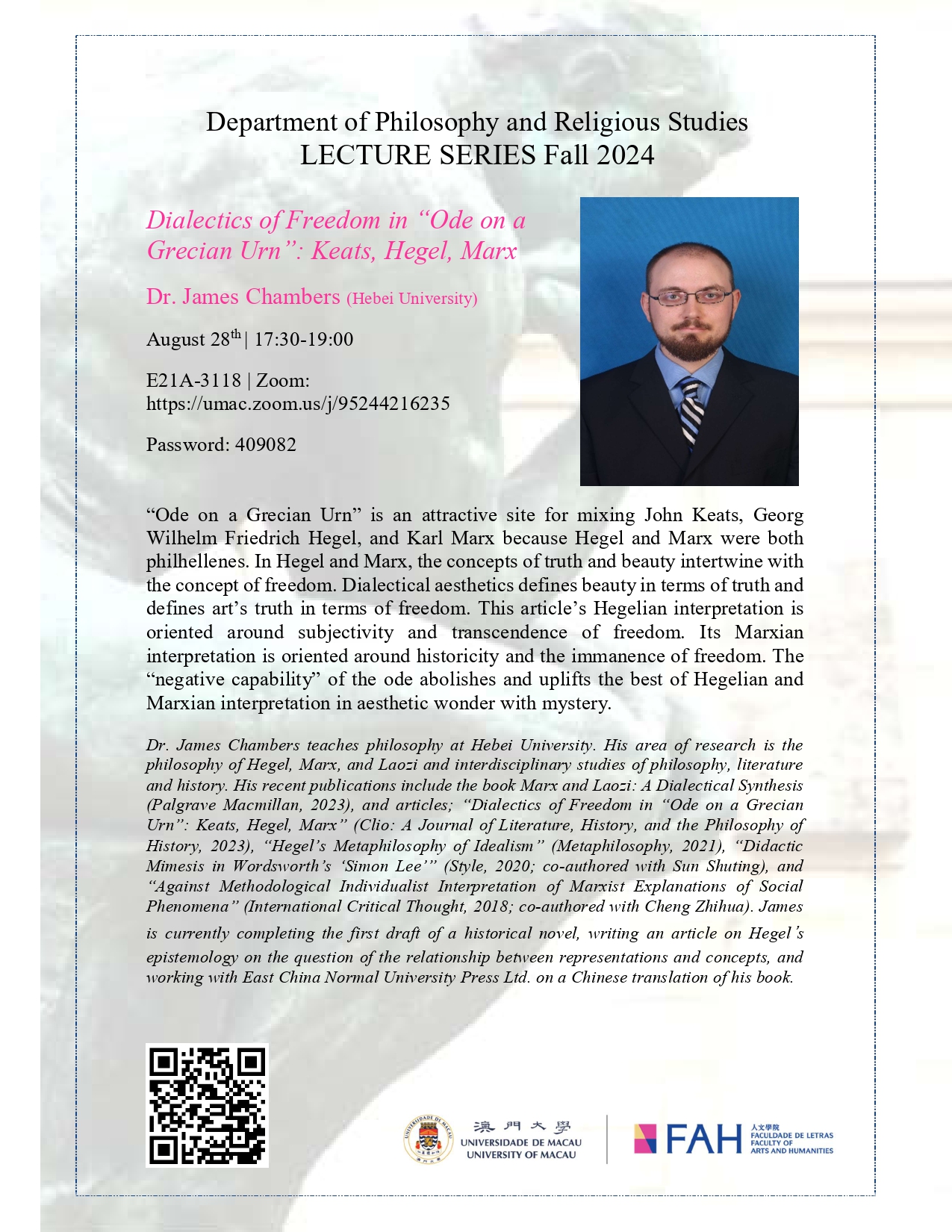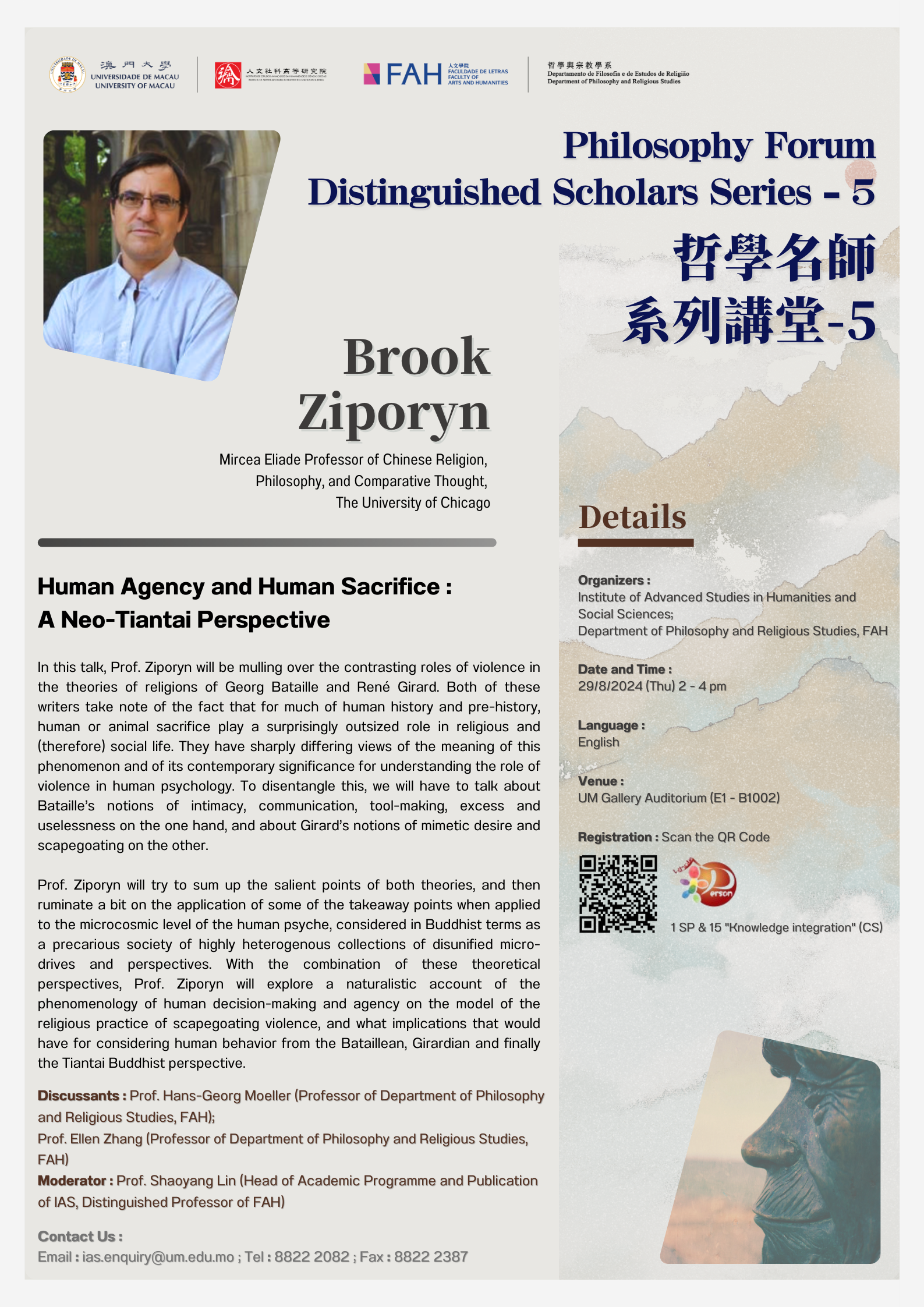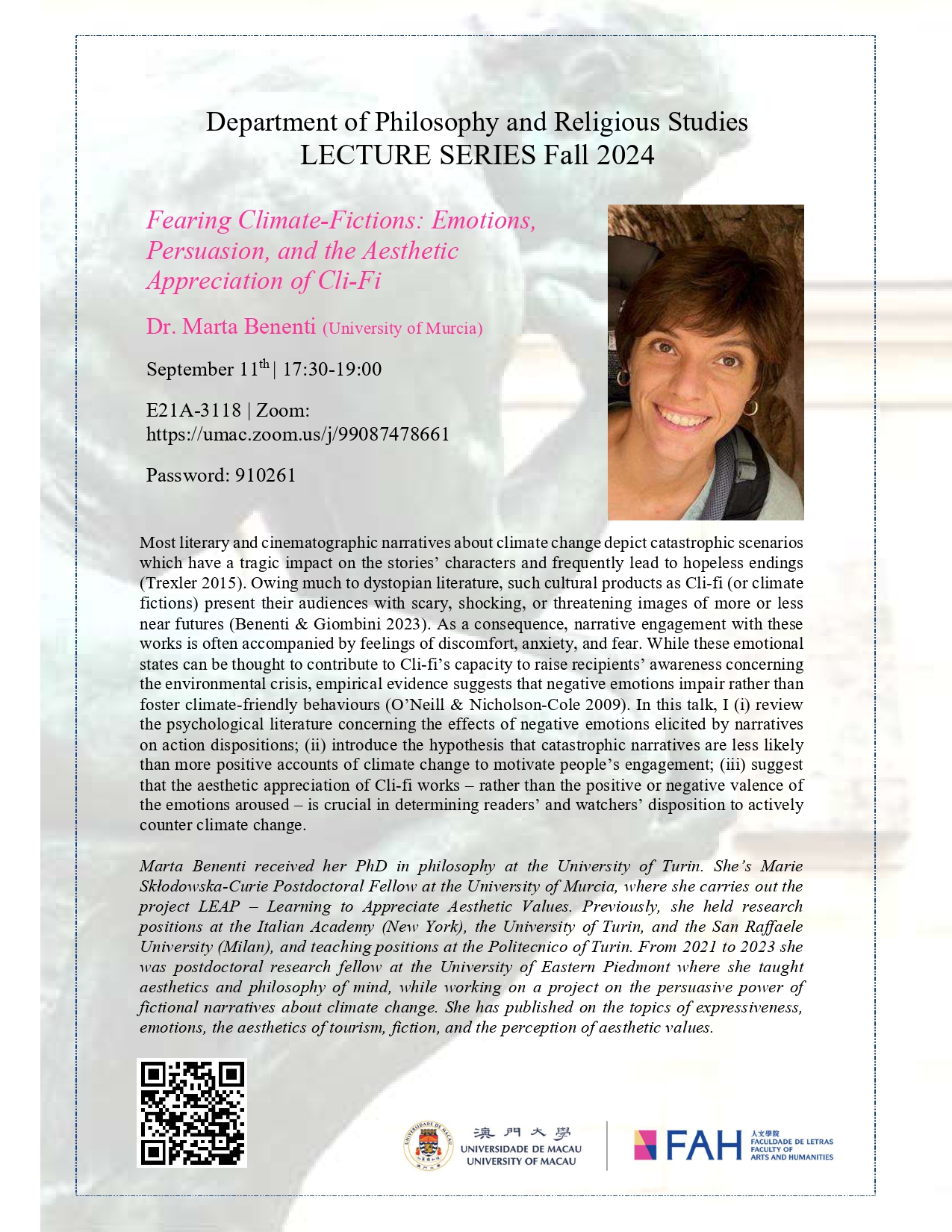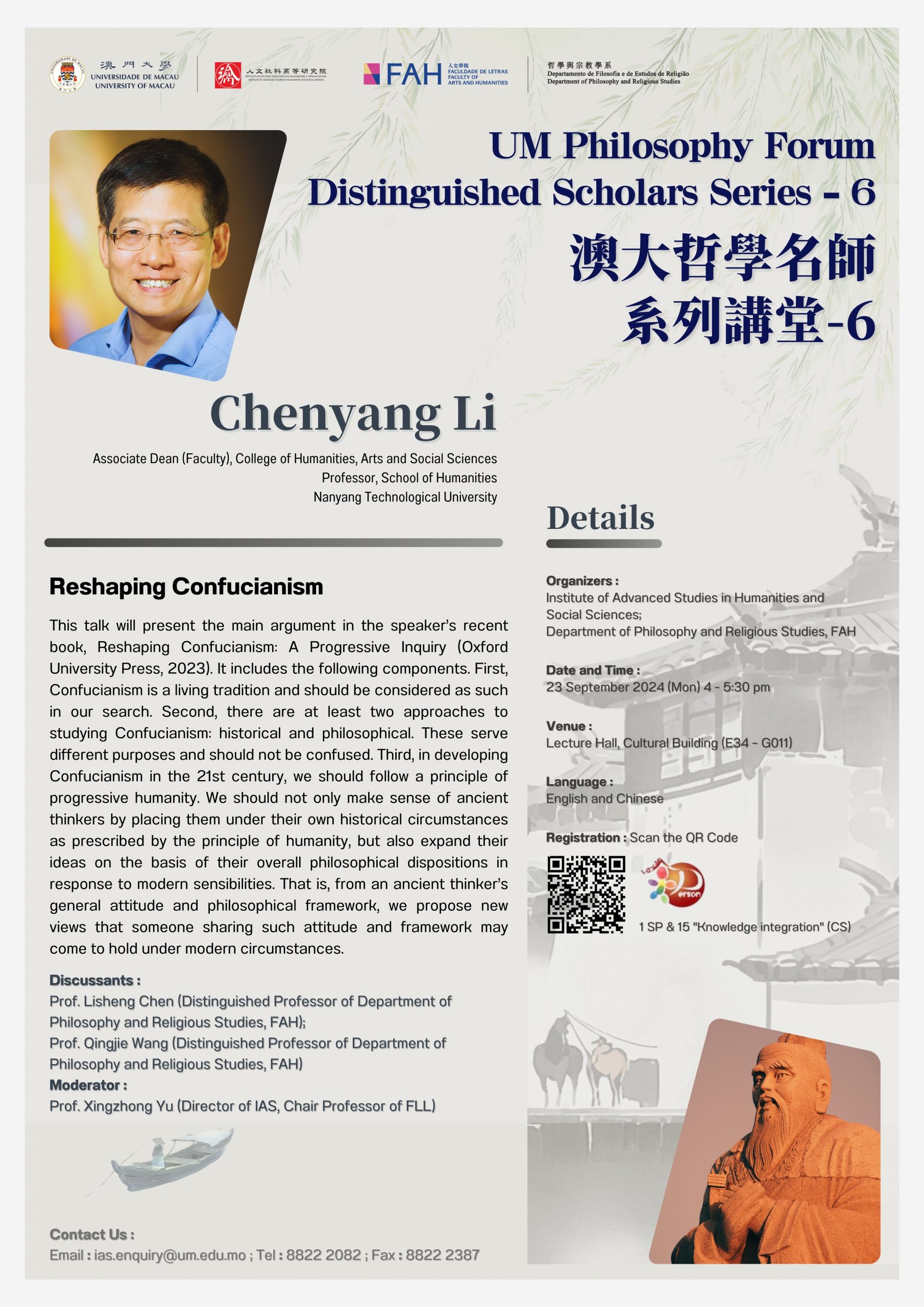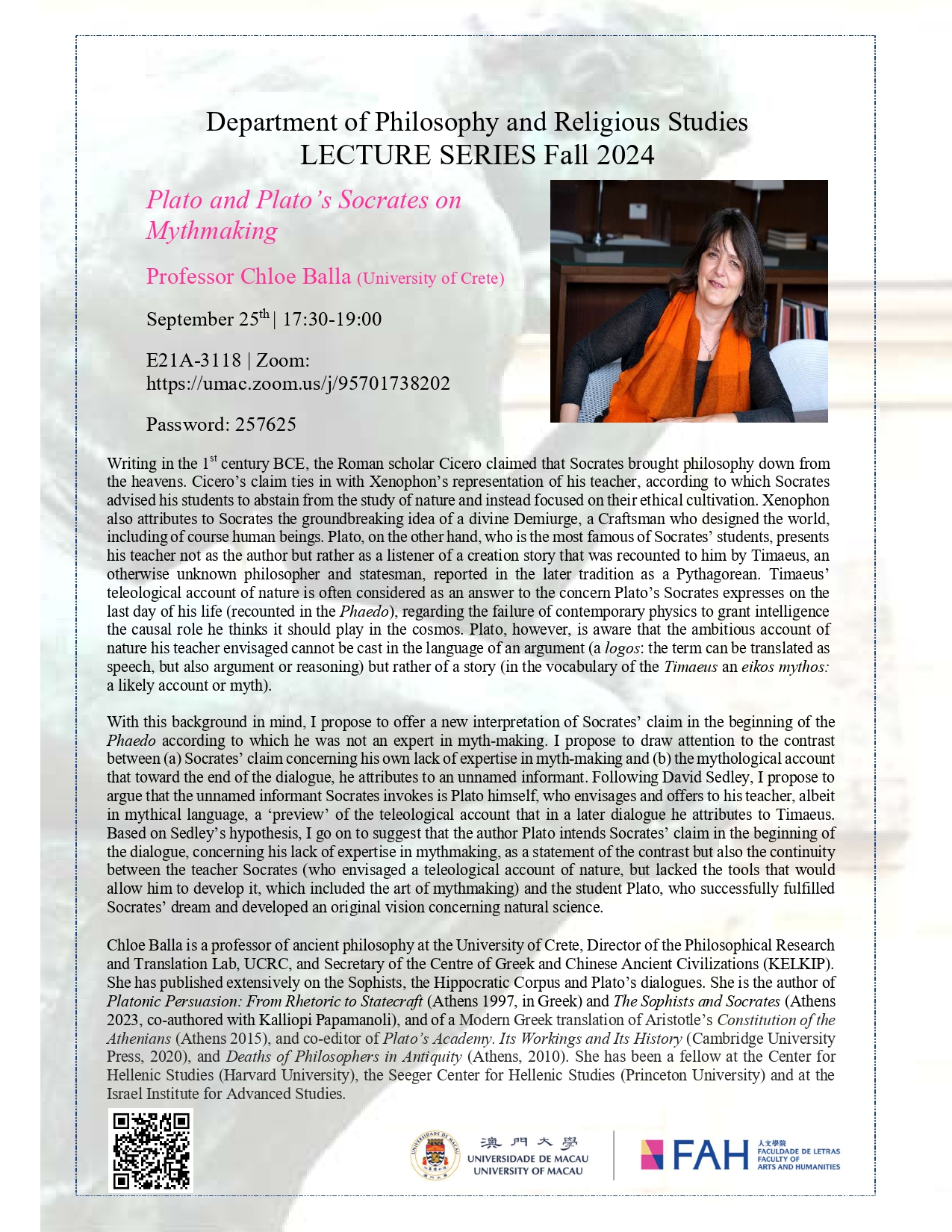Calendar of Events
M Mon
T Tue
W Wed
T Thu
F Fri
S Sat
S Sun
0 events,
0 events,
1 event,
FAH/DPHIL Lecture Series – “Dialectics of Freedom in “Ode on a Grecian Urn”: Keats, Hegel, Marx” by Dr. James Chambers, Hebei University, China
FAH/DPHIL Lecture Series – “Dialectics of Freedom in “Ode on a Grecian Urn”: Keats, Hegel, Marx” by Dr. James Chambers, Hebei University, China
Zoom: https://umac.zoom.us/j/95244216235 Password: 409082 Abstract “Ode on a Grecian Urn” is an attractive site for mixing John Keats, Georg Wilhelm Friedrich Hegel, and Karl Marx because Hegel and Marx were both philhellenes. In Hegel and Marx, the concepts of truth and beauty intertwine with the concept of freedom. Dialectical aesthetics defines beauty in terms of truth and defines art’s truth in terms of freedom. This article’s Hegelian interpretation is oriented around subjectivity and transcendence of freedom. Its Marxian interpretation is oriented around historicity and the immanence of freedom. The “negative capability” of the ode abolishes and uplifts the best of Hegelian and Marxian interpretation in aesthetic wonder with mystery. Bio Dr. James Chambers teaches philosophy at Hebei University. […]
0 events,
0 events,
0 events,
0 events,
0 events,
0 events,
0 events,
0 events,
0 events,
0 events,
0 events,
0 events,
1 event,
FAH/DPHIL Lecture Series – “Fearing Climate-Fictions: Emotions, Persuasion, and the Aesthetic Appreciation of Cli-Fi” by Dr. Marta Benenti, University of Murcia, Spain
FAH/DPHIL Lecture Series – “Fearing Climate-Fictions: Emotions, Persuasion, and the Aesthetic Appreciation of Cli-Fi” by Dr. Marta Benenti, University of Murcia, Spain
Zoom: https://umac.zoom.us/j/99087478661 Password: 910261 Abstract Most literary and cinematographic narratives about climate change depict catastrophic scenarios which have a tragic impact on the stories’ characters and frequently lead to hopeless endings (Trexler 2015). Owing much to dystopian literature, such cultural products as Cli-fi (or climate fictions) present their audiences with scary, shocking, or threatening images of more or less near futures (Benenti & Giombini 2023). As a consequence, narrative engagement with these works is often accompanied by feelings of discomfort, anxiety, and fear. While these emotional states can be thought to contribute to Cli-fi’s capacity to raise recipients’ awareness concerning the environmental crisis, empirical evidence suggests that negative emotions impair rather than foster climate-friendly behaviours (O’Neill & Nicholson-Cole 2009). In […]
0 events,
0 events,
0 events,
0 events,
0 events,
0 events,
0 events,
0 events,
0 events,
0 events,
0 events,
0 events,
1 event,
FAH/DPHIL Lecture Series – “Plato and Plato’s Socrates on Mythmaking” by Prof. Chloe Balla, University of Crete, Greece
FAH/DPHIL Lecture Series – “Plato and Plato’s Socrates on Mythmaking” by Prof. Chloe Balla, University of Crete, Greece
Zoom: https://umac.zoom.us/j/95701738202 Password: 257625 Abstract Writing in the 1st century BCE, the Roman scholar Cicero claimed that Socrates brought philosophy down from the heavens. Cicero’s claim ties in with Xenophon’s representation of his teacher, according to which Socrates advised his students to abstain from the study of nature and instead focused on their ethical cultivation. Xenophon also attributes to Socrates the groundbreaking idea of a divine Demiurge, a Craftsman who designed the world, including of course human beings. Plato, on the other hand, who is the most famous of Socrates’ students, presents his teacher not as the author but rather as a listener of a creation story that was recounted to him by Timaeus, an otherwise unknown philosopher and […]


